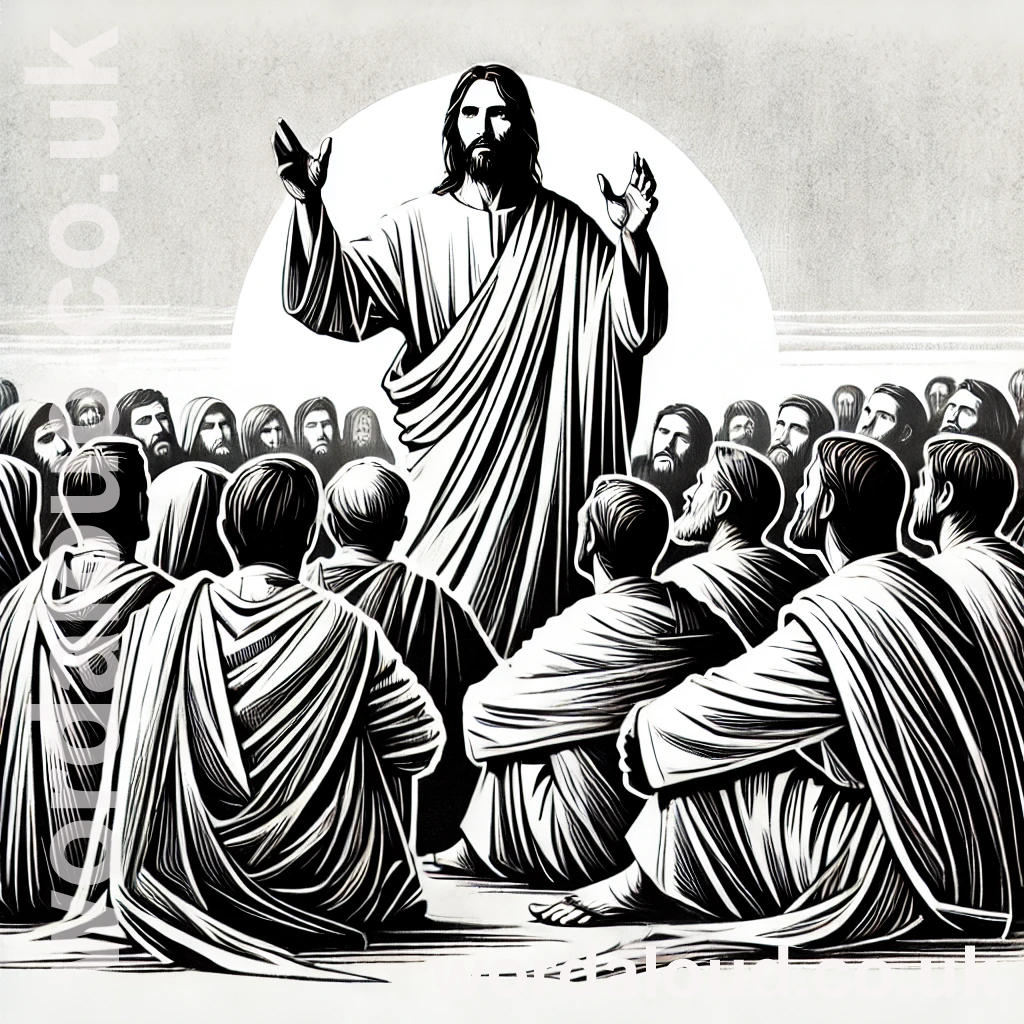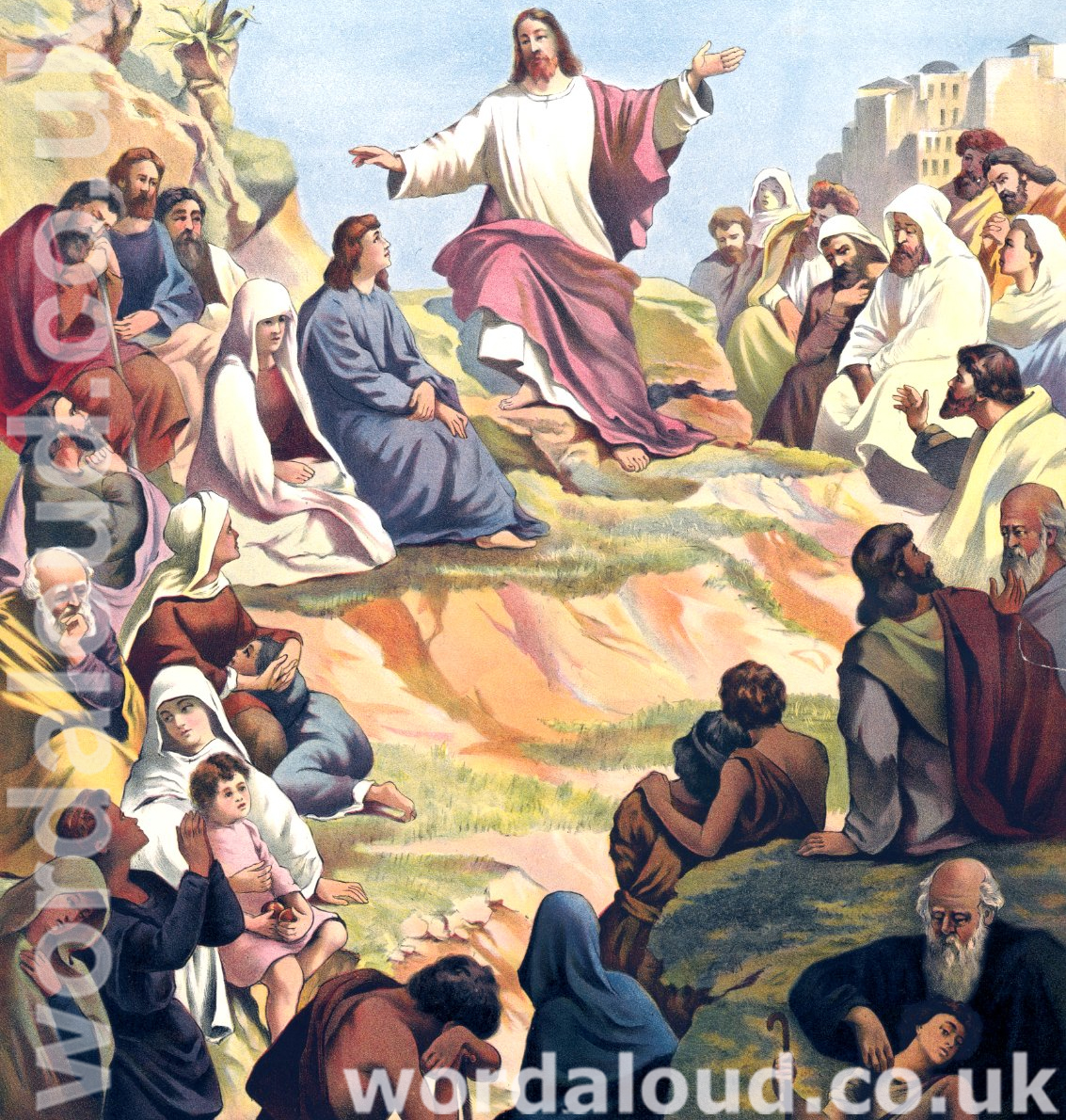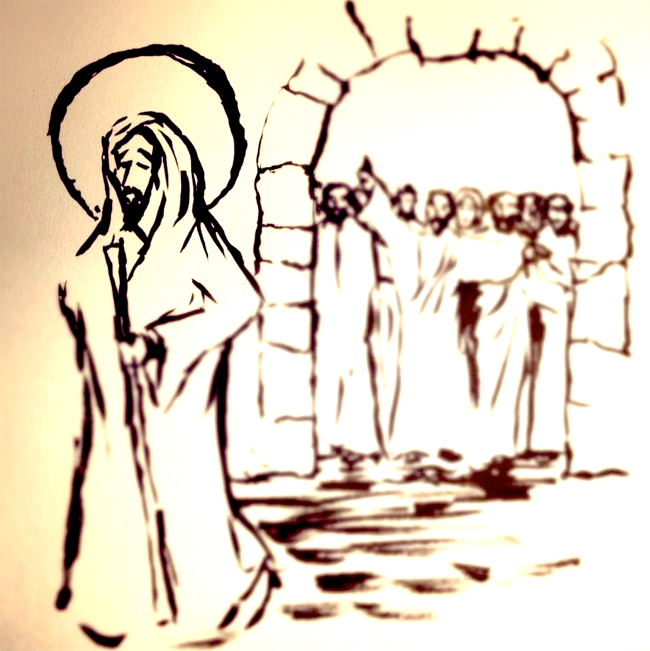Christian Art | Blind Lead The Blind | King James Audio Bible
Luke 6: 39-42 – Week 23 Ordinary Time, Friday (King James Audio Bible KJV, Spoken Word)
Overlapping with Sunday Week 8 Ordinary Time, Year C
39 And he spake a parable unto them, Can the blind lead the blind? shall they not both fall into the ditch?
40 The disciple is not above his master: but every one that is perfect shall be as his master.
41 And why beholdest thou the mote that is in thy brother’s eye, but perceivest not the beam that is in thine own eye?
42 Either how canst thou say to thy brother, Brother, let me pull out the mote that is in thine eye, when thou thyself beholdest not the beam that is in thine own eye? Thou hypocrite, cast out first the beam out of thine own eye, and then shalt thou see clearly to pull out the mote that is in thy brother’s eye.
We are called to self-knowledge by Jesus. It can be strange to realise that we have been looking at life, and other people, through the filter of our own prejudices, our own mental baggage, the accumulation of our individual and less than perfect history. Our experience, good and bad, and the impact of our experience constitute in large measure the glasses, the spectacles, through which we see the world and regard other people. These Gospel verses ask us to take off those glasses and to consider them objectively – to consider as objective what had become subjective – and to look again without those glasses, to see the world and other people anew.
This is the beam in our own eyes, which distorts our capacity truly to recognize others, which is to say to see Christ in others. Indeed, we may be assured that when we see another human being and we do not see Jesus Christ in that human being, then we are blind and there is the beam in our own eyes; our bad experience has drawn us away from God, occluding our true sense of our fellow human beings, rendering us blind. Jesus alerts us to this condition, so that we may counter it, reminding ourselves always to look with the eyes of love, and to see Christ always in our fellow man.
Jesus lived with us as our master. He taught us both through what he had to say and through his manner of living. There is a model of perfection here which we may follow. This is a way of humility. Jesus humbled himself by dying for the sake of our sins on the cross. Jesus humbled himself by becoming human, then he nailed the sign of our salvation to the cross. If God can make this staggering leap of humility, to become like us, and one of us, who are we possibly to refuse God’s call?
Concluding Prayer | Love Revealed By Jesus Christ
Lord Jesus Christ,
who when the whole world was shrouded in darkness
mounted the wood of the cross
as the innocent victim for our redemption,
give us always that light
which will bring us to eternal life.
Who live and reign for ever and ever.
![]()

King James Audio Bible | Endnotes
Blind Leading The Blind
The Gospel contains a powerful message about leadership, discipleship, and self-awareness. The parable of the blind leading the blind warns against following those who lack insight and understanding, and reminds us of the importance of seeking guidance from those who are wise and knowledgeable.
Throughout the Bible, we are warned against false teachers and leaders who seek to mislead and deceive God’s people. In the book of Jeremiah, the prophet warns of the dangers of following false prophets, saying: ‘Thus saith the Lord of hosts, Hearken not unto the words of the prophets that prophesy unto you: they make you vain: they speak a vision of their own heart, and not out of the mouth of the Lord.’ (Jeremiah 23:16)
In the New Testament, we are warned against false teachers who seek to lead us astray. The apostle Paul writes in 2 Corinthians 11:13-15: ‘For such are false apostles, deceitful workers, transforming themselves into the apostles of Christ. And no marvel; for Satan himself is transformed into an angel of light. Therefore it is no great thing if his ministers also be transformed as the ministers of righteousness; whose end shall be according to their works.’
In addition to warning against false leaders, the passage in Luke also reminds us of the importance of discipleship. Jesus tells his disciples that they are not above their master, and that they should strive to become perfect, just as their master is perfect. This idea is echoed throughout the Bible, with many passages emphasizing the importance of following in the footsteps of Jesus and striving to become more like him.
One such passage is found in 1 Corinthians 11:1, where Saint Paul writes: ‘Be ye followers of me, even as I also am of Christ.’ This idea of discipleship is further emphasized in the book of Ephesians, where Saint Paul writes: ‘And he gave some, apostles; and some, prophets; and some, evangelists; and some, pastors and teachers; For the perfecting of the saints, for the work of the ministry, for the edifying of the body of Christ: Till we all come in the unity of the faith, and of the knowledge of the Son of God, unto a perfect man, unto the measure of the stature of the fullness of Christ.’ (Ephesians 4:11-13)
The passage in Luke also reminds us of the importance of self-awareness and humility. Jesus tells his listeners to first remove the beam from their own eye before attempting to remove the mote from their brother’s eye. This message is echoed throughout the Bible, with many passages emphasizing the importance of self-examination and repentance.
In the book of Proverbs, we read: ‘He that trusteth in his own heart is a fool: but whoso walketh wisely, he shall be delivered’ (Proverbs 28:26). And in the New Testament, the apostle John writes: ‘If we say that we have no sin, we deceive ourselves, and the truth is not in us. If we confess our sins, he is faithful and just to forgive us our sins, and to cleanse us from all unrighteousness’. (1 John 1:8-9)
Christians have commented on the passage in Luke, offering insights and interpretations. Saint Augustine said: ‘The blind cannot lead the blind, but the clear-sighted can. The disciple is not above his master, but he who is perfected shall be as his master. Do not therefore desire to be a teacher, but rather to be taught.’








